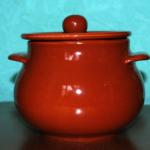The disease has an infectious nature. In 80% of cases it is caused by Escherichia coli, in other cases - by other bacteria: chlamydia, mycoplasmas, ureaplasmas, streptococci, staphylococci, etc. Women suffer from cystitis 5-6 times more often than men. This is due to the fact that the urethra in the fair sex is shorter and more vulnerable to infection.
The picture of the disease
The main symptoms of acute cystitis: pain and pain in the lower abdomen, frequent and strong urge to go to the toilet, painful urination in small portions. Urine is usually cloudy and may contain blood.
Causes
In itself, the penetration of Escherichia coli or other pathogenic bacteria into the bladder does not always lead to inflammation of its mucous membrane. The disease occurs if a number of factors join the microbial attack, which create good conditions for the reproduction of bacteria or weaken the immune defense. Among them:
hypothermia;
Non-observance of intimate hygiene (or not quite correct observance of it);
The habit of wearing tight underwear, trousers, shorts;
Emotional experiences, stress;
Chronic infections of other organs, for example, diseases of the kidneys, reproductive system, tonsillitis, caries;
Pregnancy, against the background of which not only the hormonal background changes, but also the pressure on the bladder increases due to the growth of the uterus;
Uncontrolled medication intake - aggressive chemicals contained in some drugs adversely affect the bladder wall, causing it to become irritated and inflamed.
Danger
Without treatment or with improper treatment, acute cystitis can turn into a chronic form, which is much more difficult to cope with. There is a danger of "ascent" of the infection to the kidneys, that is, the development of pyelonephritis.
Principles of treatment
Since the causative agents of cystitis are bacteria, antibiotics and antimicrobials are the main treatment for the disease. If acute cystitis occurs for the first time, you can cope with the disease yourself. To do this, you need to take a single drug, the active ingredient of which is fosfomycin trometamol, or take norfloxacin for 3-5 days. Before this, to confirm the diagnosis, it is necessary to pass a general urine test, and after the end of the course of treatment, repeat it to confirm the disappearance of inflammation. The absence of positive changes is a reason to consult a doctor in order to understand the situation in more detail. It is impossible to take another drug without consulting a specialist.
It is also forbidden to act independently if cystitis first appeared:
In a pregnant woman;
In a person with diabetes;
A person who has a sexually transmitted disease.
In such cases, it is imperative to consult a doctor and as soon as possible.
In addition to antibiotics, herbal remedies are actively used for cystitis. They are used at the stage of follow-up treatment after the therapy, they have a pronounced effect and prevent the development of relapses of the disease.
The basis of herbal preparations for cystitis are bear ears, calamus rhizomes, bearberry leaves, horsetail, thyme, mint, oregano, St. John's wort, birch leaves and buds, lingonberry leaves, St.
In women during menopause, cystitis can occur against the background of hormonal changes, so its treatment is not started with antibiotics, but with hormonal correction.
The treatment of chronic cystitis is somewhat different from the treatment of acute cystitis, its tactics are determined by the doctor.
Prevention
To reduce the risk of cystitis, you need to follow simple rules.
Women need to wash only from front to back and in no case vice versa. Otherwise, the bacteria contained in the feces will get to the genitals and into the urethra. For the same reason, it is important to observe the rules of hygiene during intercourse. Before and after intimacy, you must visit the toilet and bathroom.
Choose your personal care products carefully. Scented panty liners, perfumed soaps and gels can cause allergies that can trigger cystitis.
Change tampons during menstruation should be at least every 2 hours, at night you need to use only pads.
Long-stagnant fluid in the bladder is a good environment for the development of bacteria, so it is harmful to endure the urge. You need to go to the restroom as soon as they arise. With chronic cystitis, it is better to get used to going to the toilet every 2 hours, even if there is no particular desire.
Frequent constipation increases the likelihood of cystitis. A proper diet, including enough fluids and vegetable matter, will help to avoid them.
fiber.
Tight-fitting trousers, shorts, synthetic and tight underwear impair blood circulation in the small pelvis, which is also one of the risk factors for cystitis. You can wear synthetics and slimming things only from time to time, in everyday life it is better to give preference to loose silhouettes and natural fabrics.
Women should visit a gynecologist twice a year. Most often, bacteria enter the bladder from the vagina. Chronic cystitis is almost always associated with inflammation of the vagina (colpitis) or a violation of the vaginal microflora (bacterial vaginosis). It is easy to identify this pathology by a gynecological smear from the vagina, and a gynecologist will also help to cope with these diseases.
It is important to treat chronic infections of other organs, including caries. Persistent infection "from above" always maintains inflammation "from below".
Inflammation of the lining of the bladder is called cystitis. The process is acute or chronic. The cause of the disease is bacteria, fungi, viruses that live in humans or enter the body at the time of contact with the source of infection.
The provoking factor is the weakening of the immune system, which occurs due to stress, poor nutrition, hypothermia, and the presence of concomitant pathology. Cystitis in women occurs five times more often than in the strong half. This is due to the structure of the genitourinary system and physiological characteristics. The wide and short urethra allows microorganisms to more easily penetrate the bladder cavity. An unstable hormonal background predisposes to a decrease in protective forces. Pain in cystitis along with dysuric phenomena on disrupt work performance and quality of life. The symptoms are so severe that the patient cannot leave the house. The use of analgesics alleviates the condition, breaks the pathological circle.
Briefly about cystitis: causes, symptoms, treatment
Causes of cystitis:
- The introduction of infection into the bladder from the genitals, rectum in case of non-compliance with the rules of hygiene;
- Untimely treatment of inflammatory diseases of the vagina (candidiasis, trichomoniasis), hemorrhoids;
- Sexual contact with a sick or carrier of infection;
- Decreased immune response. Conditionally pathogenic microorganisms are present on the skin and mucous membranes, without causing disease. The weakening of the protective function leads to their growth;
- Prolonged cooling of the lumbar region, lower abdomen, legs. Vasospasm leads to impaired blood circulation in the pelvic organs;
- Stagnation of urine in the bladder with its concentration, the multiplication of bacteria occurs if a woman endures for a long time, rarely goes to the toilet.
Symptoms of acute and chronic cystitis are similar. A fresh process arises suddenly. Relapse occurs after a previous inflammation. The exacerbation of the chronic process is preceded by precursors (heaviness in the lower back, over the bosom).
Symptoms of cystitis:
- Severe pain when urinating;
- Frequent urge to go to the toilet with a small amount of liquid (sometimes in drops);
- Cutting, burning, discomfort in the urethra;
- The appearance of blood, pus, mucus in the urine, its turbidity;
- Pain in the suprapubic region, radiating to the groin, genitals;
- Increased body temperature, malaise, weakness.
On the life path of a person, a huge number of various diseases lie in wait. One of them is cystitis. Doctors call cystitis an inflammatory process localized in the bladder and in most cases resulting from the penetration of pathogenic bacteria.
This disease is very painful and therefore first aid for cystitis with cystitis is very important. But before we talk about what to do in this situation, let's figure out together why cystitis develops at all.
Doctors identify several main reasons:
- stasis of urine
Incomplete emptying of the bladder very often provokes the development of cystitis. Especially often this happens in the postoperative period or during a serious illness.
- Taking antidepressants
These drugs in most cases provoke the development of this disease. Be sure to talk to your doctor about this. Perhaps he will replace drugs.
- Sedentary lifestyle, sedentary work
- infections
Any infectious diseases that a person has also contribute to the development of cystitis, because there is a risk of infection entering the bladder cavity.
- Personal hygiene
In addition, very often the cause of the development of the disease becomes an elementary non-compliance with the rules of personal hygiene. This is especially true for women - anatomical features predispose to the development of cystitis. The urinary canal is much shorter than in men, and is located much closer to the anus.
- sexual activity
Often, cystitis develops as a result of a sharp increase in sexual activity. In order to avoid this, doctors recommend emptying the bladder before and after sexual intercourse.
- Venereal diseases
- Menopause
- Pregnancy
Of course, these are not all the reasons that can provoke the development of the disease. But we still listed all the main reasons, so if you are at risk, be extremely attentive to your health. At the first symptoms of the disease, take appropriate measures immediately.
Signs of the disease
But in order to understand that it is time to act, you need to know exactly the symptoms of cystitis. Although, in fairness, it should be noted that it is impossible to miss cystitis - it always proceeds very pronouncedly and gives a person many painful minutes. So, the symptoms of cystitis include:
- Frequent urination. Moreover, false urges to urinate are also typical.
- Painful urination, feeling of pain and burning.
- A sharp unpleasant odor of urine.
- Urine discoloration, turbidity, sedimentation.
- The appearance of blood in the urine - in especially severe cases.
- Increased body temperature, muscle pain, weakness.
If you notice these symptoms in yourself, seek help from a urologist, or at least a general practitioner, as soon as possible. However, unfortunately, it is not always possible to consult a doctor immediately, and in no case should you hesitate. So, you will have to help with cystitis to a sick person on your own. And how to do this, you will learn below.
But do not forget that, despite the high effectiveness of natural remedies, it is by no means impossible to completely refuse medical care. Therefore, nevertheless, consult a doctor as soon as possible, even if all the symptoms of the disease have disappeared. After all, traditional medicine for a complete recovery is unlikely to be enough. Because in order to destroy pathogenic microflora, antibacterial drugs are needed, which only a doctor can prescribe - self-medication in this situation will only aggravate the situation.

Important nuances
If you started treating cystitis at home, be sure to remember some simple rules that will help you overcome the disease much faster:
- Fluid intake
The very first and necessary measure for acute cystitis is a large amount of fluid. Try to drink as much liquid as possible - and almost any drink will do, except carbonated, caffeinated and alcoholic. And it is best to give preference to cranberry juice or dried fruit compote.
- Treatment time
Always remember that in the event that relief does not come within the first few hours, you should not even try to do it on your own. Of course, you can continue treatment with traditional medicine, but only in addition to the main treatment prescribed by your doctor. And only if the doctor approves the treatment you have chosen.
- Blood in the urine
In the event that you notice the appearance of blood in the urine, you need to sound the alarm and seek medical help as soon as possible. This condition is called hematuria and indicates very serious disorders in the body of a sick person and in no case should you hesitate.
Treatment of cystitis
Now it's time to talk about what kind of ways to treat cystitis with folk methods exist. In principle, there are a fairly large number of them, but we will only talk about the most effective of them, which actually help to alleviate the condition of a sick person. So:
- pain reliever
In order to get rid of even severe pain as quickly as possible, you will need one tablespoon of baking soda, one tablet of regular analgin, cranberry juice or fruit drink, 0.5 liters of fresh citrus juice, a heating pad. If you don't have a heating pad, you can use a hot water bottle.
The first thing to do in the first hour after the first symptoms of cystitis appear is to dissolve one tablespoon of soda in a glass of warm water. Drink it in small sips, within 15 minutes. Soda is an alkali - thanks to this, the burning sensation is very effectively suppressed, and the cutting pain sensations are largely dulled.
About half an hour later, drink an analgin tablet with half a liter of citrus juice. Lie down in bed and apply a heating pad to your lower abdomen. As a rule, after about 10 minutes the pain recedes. Yes, and the number of urges to urinate will significantly decrease. Do not forget to change the water in the heating pad as it cools. Warming up can last up to two hours.
Every fifteen minutes, drink half a glass of cranberry juice or fruit drink - and you need to drink it during the day. Moreover, during the disease it is necessary to completely abandon solid food. Liquid cereals and soups - that's the whole menu of a sick person. Be prepared for the fact that you will have to run to the toilet very often. But in this case, it only plays into the hands of a sick person.
The more liquid he drinks and the more times he empties his bladder, the faster his condition will be relieved. And pay attention - to achieve the best result, it is recommended to empty the bladder completely, avoiding retention and stagnation of urine. Simply put, you kind of “wash out” the infection from the bladder.
Moreover, in this way you prevent the further development of pathogenic microflora. Yes, and the discomfort during urination becomes much weaker - because the urine is much less concentrated.
- Parsley decoction
No less effect is achieved in the treatment of parsley decoction. Preparing a decoction is very simple. Grind five tablespoons of fresh parsley, place it in an enamel pan and pour half a liter of cold water. Bring water to a boil over low heat, cover tightly and simmer for about 15 minutes. After that, remove the pan from the heat and wrap it with a terry towel.
Infuse the decoction for about an hour, then strain with gauze. You need to take a decoction in small sips, for an hour. It is not recommended to drink more than a liter of such a decoction per day. And remember the need to constantly drink as much liquid as possible - when treating with parsley decoction, this rule does not lose its relevance. Drink at least 1 liter of liquid within an hour.
- Infusion of garlic
Garlic has long been considered a very powerful antiseptic that helps fight bacteria. Do you remember that in almost all cases the pathogenic microflora is the culprit for the development of cystitis? So, for the treatment of cystitis, garlic is excellent. The infusion is prepared as follows. You will need two heads of garlic, one liter of water and a tablespoon of honey.
Peel the garlic and finely chop the cloves, then place them in a thermos. Fill with one liter of boiling water, close the thermos with a lid and leave for about three hours. After that, add honey and mix the resulting infusion thoroughly. Strain it through cheesecloth and pour into a glass container.
An infusion of garlic should be drunk one hundred grams every 15 minutes. But no more than one liter per day. This tool is very effective. But, unfortunately, it cannot be used by people suffering from any diseases of the digestive tract.

- Aloe decoction
Another very effective remedy for the treatment of acute cystitis is the well-known aloe. Or rather, its leaves. To prepare a decoction for a day, you will need 4 leaves of aloe, a tablespoon of any natural honey and a liter of water. Place the aloe leaves in the freezer and leave there for about an hour. After that, pass them through a meat grinder and place in an enamel pan.
Pour the gruel of aloe leaves with one glass of water and over low heat, stirring constantly, bring to a boil. After the water boils, add the remaining volume of it. Cover and cook for about half an hour.
After this time, turn off the heat, add honey and let the broth brew for about an hour. After that, strain the broth with gauze and pour it into a glass container. It is necessary to take a decoction of aloe every hour, 100 grams each. By the way, those people who suffer from various diseases of the digestive tract will be treated in this way - both honey and aloe affect the digestive organs in the most positive way. The duration of treatment is no more than five days. The first feeling of relief will come in a few hours.
- pharmaceutical camomile
In the event that for some reason you could not find cranberries, do not despair. Everyone's favorite pharmacy chamomile will come to the rescue - a truly universal natural medicine. Chamomile has several useful properties at once - it relieves the feeling of pain, relieves even severe inflammatory processes and perfectly disinfects. And what do we need to treat cystitis? Correctly! Relieve pain, destroy bacteria, relieve inflammation of the bladder mucosa.
To do this, you can use two recipes of traditional medicine. The first and easiest is chamomile tea. Just brew chamomile like regular tea and drink at least three liters a day. However, this method is good and effective only in mild forms of the disease.
In more severe cases, “heavy artillery” is used - a decoction of chamomile. To prepare it, you will need three tablespoons of crushed chamomile inflorescences, half of the coltsfoot tea herb and a liter of water. Bring water to a boil, add herbs. Then cover the pot with a lid and reduce the heat. Boil the broth for a long time - about an hour. After that, let it brew for an hour, then strain with gauze and pour into a glass container.
You need to take a decoction every half hour, 50 grams each. Drinking it is quite difficult, so immediately after preparing the broth, you can add a couple of tablespoons of natural honey to it. Sugar is highly discouraged, as it puts a heavy burden on the urinary system. The duration of this course of treatment is at least three days.
- Decoction of calendula
Calendula also has a strong disinfecting property. For the treatment of acute cystitis, you need to prepare the following decoction. Boil one liter of water, add half a teaspoon of regular baking soda and five tablespoons of marigold flowers to it. Reduce the heat and cover the pot with a lid. That's it - for about half an hour you are completely free.
After that, strain the resulting broth with gauze and pour into a glass container. Please note - to store this decoction - even for a very short time - is permissible only in the refrigerator. Otherwise, it will instantly lose all its positive properties. You need to take it one hundred grams, every hour. The duration of treatment is no more than three days.
- cucumber therapy
In the event that the disease of cystitis occurred in the summer season, and you can easily buy cucumbers, try the following method for treating cystitis. However, pay special attention - imported imported cucumbers are not suitable for these purposes. You will need 200 grams of any natural honey, 2 kg of cucumbers and one and a half liters of water. Divide the cucumbers into two equal parts. Pass one part through a meat grinder and mix thoroughly with honey, leave for two hours in a cool dark place.
At this time, cut the second half of the cucumbers, place in a saucepan and cover with water. Bring the water to a boil, cover the pot with a lid and simmer the cucumbers for about 10 minutes. After that, let it brew for half an hour, strain with gauze. So, we end up with a healing mixture of cucumbers and honey, as well as cucumber decoction.
Cucumber-honey mixture should be eaten every 10-15 minutes, one teaspoon. And drink cucumber decoction every hour, 100 grams. Be prepared for the fact that you will practically never leave the toilet - this remedy has a very strong diuretic effect.
As you can see, all recipes for treating cystitis at home are quite simple and accessible to everyone. Therefore, you can start the first treatment immediately. However, remember that a visit to the doctor in this situation is a mandatory procedure. Even if the symptoms of cystitis as a result of your treatment have disappeared completely and completely, you cannot calm down.
After all, it may very well be that you simply “drowned out” the disease. But very soon it will again make itself felt. And only a doctor can really assess the state of your health and give the necessary recommendations. Be healthy!
Talk 8
Similar content

Every day with the problem of involuntary urination, many patients come to see a urologist. This pathology prevails in women, especially of retirement age. Urge incontinence is a symptom of cystitis. It is manifested by involuntary leakage of urine that occurs during a sudden urge to urinate. With cystitis, there are not only painful sensations, but discomfort that interferes with a person in everyday life.
The main symptoms of the disease
Urinary incontinence, which arose due to cystitis, is manifested by the following symptoms:
- Frequent painful urination, feeling of insufficient emptying of the bladder.
- Inability to control the need to empty the bladder throughout the day and in the most unpredictable situations.
- Frequent nocturnal urination and uncontrolled leakage of urine during sleep.
- Urine becomes cloudy, sometimes with impurities of blood.
- Pain in the lower abdomen.
In rare cases, this problem may be accompanied by nausea and vomiting. If the symptoms are accompanied by an increase in temperature above 37.5 degrees, then you need to urgently consult a doctor to exclude kidney disease and pyelonephritis. Women should first of all turn to a gynecologist, and they come to a urologist in his direction.
Causes of the pathological process
In women, due to anatomical features (short urethra and a small distance of the vagina and anus to the urethral opening), cystitis is more likely to occur. This pathology is manifested by inflammation of the bladder. Irritation that occurs against the background of inflammation leads to damage to the mucosa and reduces the immune defense of the body. Due to these factors, nerve receptors give false signals about the need to urinate. Causes of cystitis:
- lack of personal hygiene;
- hypothermia;
- sedentary work;
- poor sex hygiene;
- spicy food;
- genital trauma;
- severe forms of constipation;
- infections.
 Compliance with the rules of personal hygiene will help prevent the disease.
Compliance with the rules of personal hygiene will help prevent the disease. If the incontinence problem does not have accompanying pathologies, then the recovery is successful. Pathologies include stress incontinence, surgical trauma, diabetes mellitus, muscle weakness, and neurological diseases. Women suffering from urinary incontinence may also have various gynecological or hormonal conditions. In men - problems with the prostate gland, epididymis, urethra. During pregnancy, cystitis often occurs in women due to hormonal changes and a decrease in immunity.
Diagnosis and treatment
Self-treatment of cystitis does not always have positive results and may lead to a chronic form of the disease in the future. With such an intimate problem, you need to contact a doctor - a urologist or gynecologist (for women). The doctor must conduct a preliminary survey of the patient and special examinations:
- general analysis of blood and urine;
- examinations for the presence of infections (trichomonas; ureaplasma, mycoplasma, fungi of the genus Candida);
- Ultrasound of the pelvic organs (bladder);
- cystoscopy (visual examination of the bladder);
- electromyography (a method for studying the neuromuscular system).
In the treatment of urinary incontinence caused by cystitis, a conservative method is used, which in 100% of cases gives a positive result. In the tactics of treating cystitis, antibacterial, antiviral, antifungal, painkillers can be used. The treatment regimen for urinary incontinence provoked by cystitis should be supplemented with drugs to reduce bladder activity (Driptam, Spasmeks), neotropic agents (Pikamilon), vitamin preparations to improve the condition of nerve fibers. Drug treatment is complemented by diet and the use of warm baths to reduce pain. Surgical intervention is extremely rare. For women, therapeutic exercises (Kegel exercises) will be effective to strengthen the intimate muscles.
Frequent hypothermia, emotional overstrain, taking certain drugs can provoke the appearance of cystitis. The disease of the urinary system develops after the penetration of pathogenic microorganisms into the bloodstream: Escherichia coli, staphylococci, Proteus. This reduces the quality of human life: it limits the freedom of movement and forces to change plans. What to do with cystitis in order to quickly eliminate the pathology - you should follow some rules.
What to pay attention to
Burning sensation and pain in the genitals, frequent urge to urinate, a feeling of overcrowding of the bladder after a recent visit to the toilet, painful cramps in the lower abdomen, changes in color, smell and composition of urine - these are just the main symptoms of an insidious disease. When diagnosing, urologists distinguish between acute and chronic forms of pathology. Acute cystitis occurs suddenly, proceeds violently, manifests itself with characteristic signs of extensive inflammation.
The most dangerous and unpredictable type of disease is chronic. In the vast majority of cases, the cause of its occurrence is the neglect of women and men to their health. The symptoms of once developed acute cystitis were eliminated at home with the help of grandmother's advice and medicinal herbs. But the factor that provokes burning and pain during urination has not disappeared anywhere - bacteria and viruses continue to actively multiply on the mucous membrane of the bladder.
Unhealed cystitis manifests itself in acute relapses several times a year with hypothermia of the body. This can happen even during a trip to the sea, after swimming. But even this cannot inspire a person to make an appointment with a gynecologist or urologist.
The treasured boxes with chamomile or bearberry are again taken out of the lockers and everything starts anew - the remission stage replaces the exacerbation of the disease. For pathogenic microorganisms, this development of events is extremely favorable. They begin to move up the urinary tract to the kidneys, causing irreversible changes at the cellular level.
Men suffer from cystitis much less frequently than women. This is due to the different anatomical structure of both sexes. The female urethra is wider and shorter than the male urethra, so viruses and bacteria can easily enter the bladder.
The disease in the representatives of the stronger sex appears, as a rule, in old age against the background of chronic prostatitis. If a man is tormented by cystitis, which does not go away even after using powerful antibiotics, then you should consult a doctor for an examination and treatment of prostatitis or adenoma.

The first symptoms of cystitis are painful cramps in the lower abdomen
Or maybe it's not cystitis?
If a person has a violation of urination, and the urine becomes cloudy, most of the sick are 100% sure - that's it, I have cystitis - and they are reaching for the "tested" remedy. Inflammation of the bladder mucosa may have nothing to do with pathogenic microorganisms. The pathological condition develops when poisons of plant and animal origin, caustic alkalis and acids, spoiled food get inside the body. Cystitis can have an allergic etiology, be formed during irradiation. Malignant tumors and stones can block the urethra and cause inflammation.
Therefore, the main thing that should be done at the first sign of cystitis is to make an appointment with a doctor. It makes no sense to douche with bear ears if you have a neoplasm in your bladder. If cystitis is not complicated and of bacterial origin, then a general practitioner is engaged in its therapy. But it is best to consult a narrow profile specialist - a urologist. But what usually happens is:
- girls and women are treated by a gynecologist;
- the urologist is engaged in therapy of boys and men.
Before prescribing pharmacological drugs or physiotherapy, all specialists send patients to submit biological samples to the laboratory. This is very important for the subsequent treatment. According to the results of the study, pathogenic pathogens and their sensitivity to antibiotics are identified.
The gynecologist and urologist will definitely take swabs from the vagina and urethra to rule out sexually transmitted diseases. The fact is that with the symptoms of cystitis, venereal pathologies also become aggravated. In this case, parallel therapy is carried out for inflammation of the mucous membrane of the bladder and, for example, gonorrhea.
A more thorough diagnosis may be required if, in addition to signs of cystitis, the doctor detects symptoms of an extraneous pathology. To exclude malignant or benign tumors, instrumental studies will be carried out: CT, MRI, ultrasound, X-ray. A fairly common procedure for examining the condition of the inner wall of the bladder is cystoscopy.
The right approach to treatment
If cystitis could be cured at home, then so many cases of chronic pathology would not be diagnosed every month. The first symptoms should not serve as a signal to go to the nearest pharmacy and neighbor for advice. A person simply has to decide which doctor to make an appointment with.
Cystitis is a very insidious pathology. Many women consider it a trifling disease, which is quickly eliminated by a course of antibiotics. What? A pharmacist in a pharmacy will tell you the most effective, popular and inexpensive. The consequences of such neglect of one's own health are then disentangled by doctors for a long time. They remove:
- allergic reactions (urticaria, pruritus and blisters);
- intestinal dysbacteriosis;
- weakened immunity;
- chronic hemorrhagic cystitis, pyelonephritis, glomerulonephritis;
- disorders of the gastrointestinal tract (nausea, flatulence, belching and constipation).
It is enough to turn on the TV to find out that cystitis will disappear immediately after taking this pill. Small letters at the bottom of the screen with the requirement to visit a doctor, no one reads. Colleagues at work willingly give advice about hot stomach warmers (bacteria like heat, they reproduce more readily) and the magical power of corn stigmas (bacteria are indifferent to them).
Self-medication usually ends:
- the transition of cystitis into a chronic form;
- the development of pathologies from improperly selected pharmacological preparations;
- the spread of the inflammatory process to other organs of the urinary system.
Therapy of cystitis during exacerbation does not take much time. Provided that the pathology is of bacterial origin and is not complicated by STDs or kidney stones. Then it is enough to dilute a bag of Monural in a glass of water and expect a speedy recovery. But no one can independently diagnose bacterial uncomplicated cystitis. This is only possible for specialists from laboratories, gynecologists and urologists. Therefore, a single dose of a tablet or solution can cause elimination of the symptoms of cystitis and the degeneration of a benign tumor into a malignant one.

A warm foot bath helps to eliminate signs of cystitis.
First aid for cystitis
So, the appointment with the doctor is scheduled for tomorrow, but the symptoms of cystitis do not go away, the person has frequent urges to empty the bladder and the lower abdomen is unbearably aching. Treatment of pathology includes traditional and non-traditional ways to eliminate negative signs. First, you should relieve painful spasms, relax the smooth muscle muscles of the bladder. You can take a pill:
- No-shpy (Drotaverine);
- Spasmalgon;
- Baralgin (Brala);
- Spazgan;
- Nimesulide (Nise).
In the evening before visiting the doctor, it is strongly not recommended to take antimicrobial agents or antibiotics. This will significantly complicate the diagnosis of cystitis, will cause improper drug therapy.
- drink pure non-carbonated water. Drink one glass of liquid every hour. This will provoke frequent urination, in which pathogenic microorganisms are washed out of the bladder;
- drink berry fruit drinks. Acidic drinks have an irritating effect on the mucous membrane of the bladder, which contributes to the full emptying. Black and red currants, lingonberries, cranberries and blueberries exhibit mild anti-inflammatory, bactericidal and antimicrobial effects. This slight antiseptic effect will not affect laboratory results, but will relieve the severity of painful spasms;
- prepare infusions and decoctions of medicinal plants. Such drinking will reduce the production of toxic compounds by viruses and bacteria, relax the smooth muscles of the bladder, and activate the body's defenses. Women can do douching with chamomile or calendula;
- brew green tea. The healing drink has antiseptic, tonic and restorative properties. Taking even one cup of freshly brewed green tea will reduce the effects of intoxication in the body, and will have a calming and restorative effect.
With a strong exacerbation of cystitis, salty and spicy foods, as well as fatty and fried foods, should be immediately excluded from the diet. It is strictly forbidden to drink strong coffee and any alcohol, lift weights, smoke.

To eliminate painful cramps, burning in the genitals and pain in the lower abdomen, it is necessary to prepare warm foot baths. Water for the procedure should never be hot. You can add decoctions or infusions of medicinal plants, a few drops of essential oils to it:
- tea tree;
- sage;
- thyme;
- juniper;
- eucalyptus;
- bergamot;
- geraniums.
Baths should not be taken if, during the emptying of the bladder, fresh scarlet blood or dark blood clots appear in the urine. This is a symptom of hemorrhagic cystitis, which occurs against the background of the formation of one or more infectious foci. Warm water can cause severe bleeding, iron deficiency anemia, and dizziness.
The above methods for eliminating the painful symptoms of cystitis are categorically not recommended for use by pregnant women. It is only necessary to take note of the use of clean water and proper nutrition. A frequent sign of the pathology of the urinary system is hyperthermia (increased body temperature). In this case, you should drink as much liquid as possible, but avoid warm foot baths.
Cystitis begins imperceptibly, discomfort with each urination appears 2-3 days after the penetration of pathogenic bacteria into the bladder. You should immediately stop using panty liners and scented toilet paper. After emptying the bladder, you need to wash and wipe dry in the direction from the genitals to the anus.
What medications does the doctor prescribe
The doctor begins treatment only after studying the results of laboratory tests. If pathogenic pathogens have become the cause of cystitis, then the patient must undergo a course of antibiotic therapy using such drugs:
- latest generation cephalosporins;
- Amoxiclav or Amoxicillin;
- Clarithromycin.
The duration of treatment depends on the stage of the pathological process, the age of the patient and the presence of a history of diseases. As a rule, therapy takes from 7 to 14 days. Antibiotics quickly destroy viruses and bacteria, but also negatively affect the natural intestinal microflora. For the prevention of dysbacteriosis, probiotics and prebiotics are prescribed (Linex, Acipol, Enterol, Lactobacterin, Bifidumbacterin).

Amoxicillin - an antibiotic for the rapid cure of cystitis
If cystitis has worsened, then broad-spectrum antimicrobials are used, which have proven themselves in the treatment of acute and chronic forms of pathology:
- Furazolidone. The drug has activity against many bacteria and protozoa;
- Nolicin (Normax, Norbaktin). The antibacterial effect of the drug allows it to be used in the treatment of complicated and uncomplicated cystitis;
- Monural. Modern medicine in the form of a powder for the preparation of a suspension is active against all pathogens of cystitis;
- Nitroxoline (5-NOC). A long-known remedy that has not lost its relevance for the treatment of pathologies of the urinary system;
- Palin. The therapeutic effect of the drug is especially effective at the beginning of the development of cystitis.
Many people get sick with cystitis again after being cured. This may be due to the specifics of work or frequent hypothermia. For such frequent patients of urologists, the drug Uro-Vaxom has been synthesized. The drug contains a lyophilizate of Escherichia coli, the main causative agent of cystitis. It is considered a kind of vaccination against inflammation of the mucous membrane of the bladder.
An excellent prevention of cystitis is a healthy lifestyle. An insidious disease does not occur if a person avoids hypothermia, does not smoke or abuse alcoholic beverages. Strengthen the body's resistance to the development of a bacterial infection will help course intake of vitamins and trace elements.

















